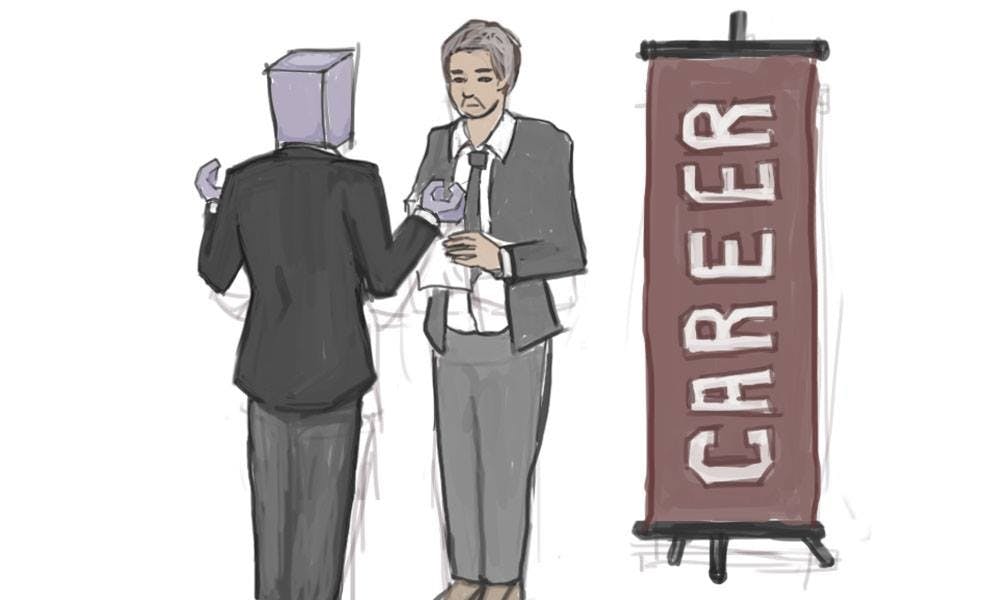
Modern breakthroughs in the science of artificial intelligence have made robots more and more human. But as this year’s internship recruitment season winds down, I wonder if my fellow Penn students have lost a bit of humanity in the process.
In the pursuit to impress recruiters and be the best applicants, we sometimes lose sight of the very traits that make us special in the first place.
When charting our academic path, many of us already have concrete plans of what we will study and when we will take the courses to fulfill that. We strive for perfect grades in order to land that “prestigious job offer” not because we like the place but rather we think society is impressed.
When did we forget to think about what we like to study and stand our ground? When did we forget to think for ourselves?
Outside of academics, the activities and organizations we partake in are many times driven by the idea of job prospects. We think about which organizations will look good to recruiters and how connected people in the organization are. But we rarely think about what we genuinely like to do and how the organization fits what we enjoy.

But even joining one group is not enough. We get involved in dozens of organizations and try to get into leadership positions, because we need to prove that we are leaders. We need to prove that we are the best candidates. However, in the processing of proving our leadership to the world through titles, we forget that the attributes of some of the greatest leaders of the world are intangible.
We ask the positions and titles we hold to speak for us, instead of speaking for ourselves. So, are we true leaders?
Before we get adjusted to the start of the semester, we start looking for internships for the summer that will impress recruiters and the people around us. There are even freshmen worried about landing an internship instead of doing something they enjoy and spending time to reflect on the year. We learn about what networking means and what the big consulting firms are even before we know the Foundational Approaches and Sector Requirements we need to fulfill. Soon enough, Quakernet becomes our search engine and Handshake becomes a crutch.
Let’s not forget that all this surely changes our interactions with the individuals around us. If you have a poorly attended event, put the word “networking” in the title and watch the rapid influx of social climbers. The word “networking” perks up our ears because we feel like that is the key to succeeding. We “network” with people in hopes that they can help us achieve what we want and land us that job. We try to flatter them and pretend like we are interested in their conversations. We meet people who we think we need to meet, and not people who we really want to meet. Soon enough people begin to look less like humans and more like tools at our disposal.
In a desire to fit a perfect mold, which doesn’t even exist, we allow others and society to dictate the direction of our lives much like a robot being externally controlled. We often become so engrossed in trying to outcompete each other on hamster wheels, that we fail to realize that we are not moving forward.
When did we forget to think about things that we like to do? When did we start losing our agency? It is not completely our fault because we have been conditioned this way. After all, for many of us it may have helped us get here at Penn. But we must consciously start to make decisions that are not pre-determined by the society we are in or the people around us. It will be hard but it will be worth it.

JAY SHAH is a College junior from New Hyde Park, N.Y. in the Biological Basis of Behavior Program. He is the Vice President of the Undergraduate Assembly. His email is shahjay@sas.upenn.edu.
The Daily Pennsylvanian is an independent, student-run newspaper. Please consider making a donation to support the coverage that shapes the University. Your generosity ensures a future of strong journalism at Penn.
Donate







